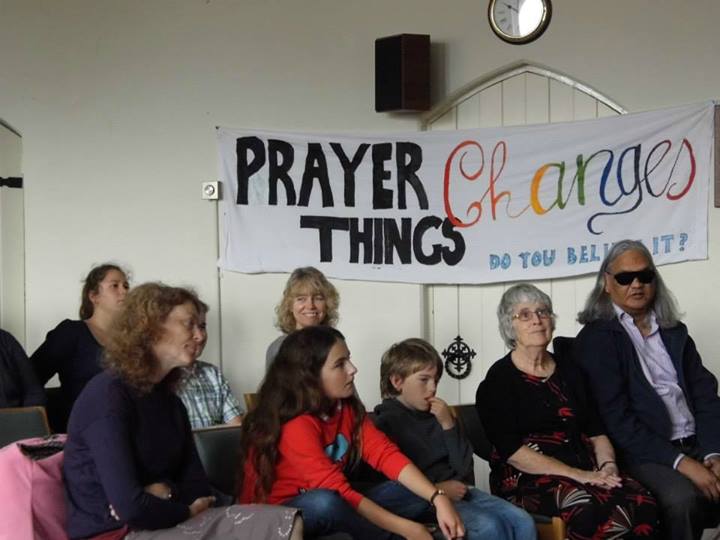
Elie Wiesel who received the Nobel Peace Prize in 1986
Elie Wiesel wrote an essay on “Cain and Abel in the Bible” for the “Bible Review”, February 1998. In his essay he looks at mankind’s first murderer.
Cain and Abel: The first two brothers of the first family in history.
Elie Wiesel wonders why they do hold such an important place in our collective memory, which the Bible represents for so many of us. He writes
Mean, ugly, immoral, oppressive—their story disturbs and frightens. It haunted mankind then and still does, working its way into our nightmares.
It may well be that you too at first become attached to Cain. He shares with his younger brother, Abel, the generous idea of offering gifts to the Most High Elohim. But for this, Abel might never have felt the need to do the same.
For reasons the text does not bother to explain, however, God accepts the gift from Abel after refusing the gift from Cain.
says Wiesel and asks further
An unjust Creator of the World? Already? How can we understand this favoritism? What did Abel do so great, beautiful or praiseworthy as to merit the divine sympathy denied to his brother? Cain, innocent victim of unprecedented heavenly discrimination—how can we not wonder about his fate?
When looking at this story and awful event in the family of Adam and Eve we should remember how God wanted the relation with Him to be and how He also warned about death coming over man.
In the book of Genesis we find the first two male children both willing to honour the Creator of their parents. God; for both decided to bring their offerings before God. Abel brought produce from his farm whilst his brother Cain brought an offering from his first born animal, choice cuts of meat. God liked Abel’s offering but did not seem to approve of Cain’s offering.
Wiesel looks here for at the Midrash (plural, midrashim), a genre of rabbinic literature that includes nonliteral elaborations of biblical texts, often for homiletic purposes, and does find that these writings come to the rescue in our attempt to fill the gaps left by the biblical text.
There we learn that God would have preferred Abel’s gifts—they were of choicer quality.
There may be reasons to get angry with some one but that should not bring the annoyed person to kill the other.
One does not kill an innocent person, and certainly not one’s brother. If Cain wished to reproach someone, he should have addressed God, and not his younger brother. Abel succeeded in winning God’s favor? Cain, the older brother, should have been pleased for Abel! Was Cain unable to control his anger? Well, that is understandable. But to throw himself on his more fortunate brother and kill him! Too much!
A fight erupted. And Cain killed Abel.

In the midrashic literature, the antagonism between the two brothers is not limited to the story about their offerings to the Lord. In the midrash, they inherited their dispute from their parents: Cain took the land for himself, and Abel received everything else. Another midrashic suggestion: Cherchez la femme—so let us look for the woman. According to this explanation, the two brothers were both in love with their mother; in another version, with their sister. A third theory: Each wanted to have the Temple of Jerusalem built in his domain. In short, the first fight in human history was also the first religious war.
These three hypotheses suggest an interesting viewpoint—that Cain is not the sole guilty party. God’s role in this quarrel is no longer the main issue. We can now consider each of the participants as an accomplice.
As a matter of fact, at a still higher level, the Talmud does not hesitate to insinuate precisely this. It asks,
“Since there is no death without sin, why did Abel merit death?”
There is a marvelous answer. It relies on the text, which says,
“Cain spoke to his brother Abel. And when they were in the field, Cain set upon his brother and killed him.”
But the text makes no mention of what Cain told Abel before killing him, nor what Abel answered.
Is it possible that Abel did not pay attention to what his brother said? That Abel’s mind was elsewhere? Was that his sin? His brother, rebuffed, rejected, needed to tell someone of his grief—and he, Abel, was not even listening! This insensitivity is what makes him guilty.
Some of our sources go very far in pleading Cain’s case. When God accused him of murder, he could have made a convincing argument:
“How was I to know that by hitting Abel he would die, since no one had lost his life before him?”
Or,
“Since You did not want me to kill my brother, why didn’t You stop me from going all the way? If a thief penetrates into a forbidden garden, is it not the guard’s fault?”
Elie Wiesel considers Cain nevertheless to remain the archetypal murderer and writes:
His flash of anger is not enough to make it a crime of passion worthy of extenuating circumstances. If he was justified in holding a grudge, it should have been against God; he was wrong to lay the blame on his brother. Had he cried out to the heavens to express his pain, even to vent his rage, all would have been forgiven. Powerless against God, Cain took vengeance on the only being near him. That was his fault. And his crime.
When looking at this sad story we can see that
Two men may be brothers and still become the victim or the killer of the other.
But there is also an other lesson to learn for us. Namely that
He who kills, kills his brother.
In some religious groups it is the tradition to think that Eve mentioning that she got the help of God to bring Cain on earth, conveys a sense of optimism, indicating that the ‘serpent‘ may not be overthrown by the offspring of the mannin. Some groups take it that Cain would be the originator of evil, violence, or greed, but this is incorrect, as we can see in chapter 3 of Moses’ writing making it clear that it was the greed of the first woman who brought sin in this world.
In several groups is also thought that Abel has become the first man to become an angel. Though people should know that when somebody dies everything comes to an end. There is no life any more in that person and nothing that goes off to other spheres. Abel, being (buried or more likely) his corps being burned, became dust, like God had told what would happen with each person, as part of the sin mankind does.
God punished Cain to a life of wandering. Cain who normally had to have taken care of his younger brother now had to dwell in the land of Nod, where he built a city and fathered the line of descendants beginning with Enoch.
+
Preceding
Between Alpha and Omega – The plan of creation
Disobedient man and God’s promises
++
Additional reading
- Doest thou well to be Angry?
- Being in isolation #5 Isolated Biblical figures and Confessional isolation
- Trusting, Faith, Calling and Ascribing to Jehovah #18 Fulfilment
- Sayings of Jesus, what to believe and being or not of the devil
- Paul’s warning about false stories and his call to quit touching the unclean thing
+++
Related reading
- Mirroring of Genesis 3-4 on God’s Clock
- The Tree Of Knowledge
- That is the Promise of Genesis 3:15
- Genesis part IV: The first murder and genealogy of the Patriarchs
- Genesis Chapter Four
- Cain and Abel
- Who are Cain and Abel?
- Cain is not like Abel
- Cain’s tattoo
- The Mark of Cain
- Marks
- Two Very Different Reactions to God Imposing His Will
- Pride Goes Before A Fall












 Belgian Biblestudents
Belgian Biblestudents Christadelphian Ecclesia
Christadelphian Ecclesia








Pingback: Cain his killing, marrying and death | Broeders in Christus
Pingback: Bereshith 4:6-16 The Punishment of Kayin (commentary) – Jeshuaisten / Jeshuaists
Pingback: From nothingness to a growing group of followers of Jeshua 2 To Please God – Jeshuaist